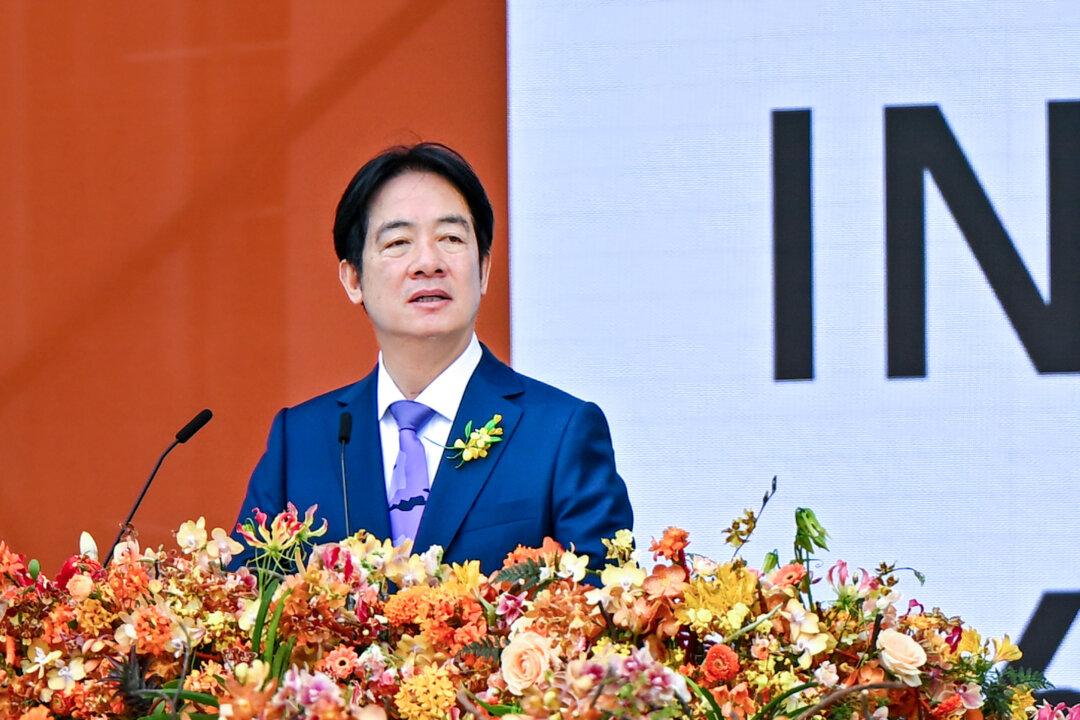TAIPEI, Taiwan—Taiwan’s new president has been sworn into office, calling on the Chinese regime to stop its military and political intimidations in a speech unlikely to deter the communist regime’s ambition to seize control of the self-ruling island.
In his 30-minute inaugural speech on May 20, Lai Ching-te, from the Democratic Progressive Party (DPP), said that Taiwan is a “sovereign and independent country,” and that the island nation and the communist regime in mainland China “are not subordinate to each other.”





